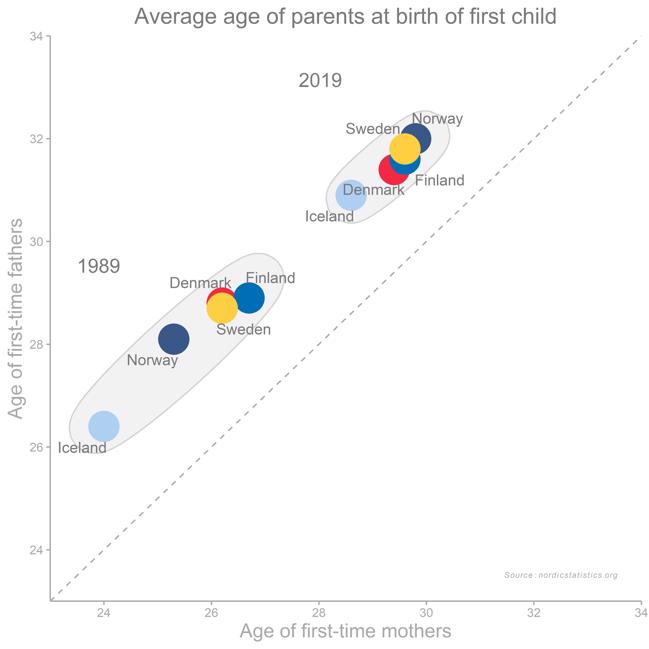First-time fathers still older than first-time mothers
Over the last 30 years the average age of becoming a first-time parent has increased in the Nordic countries. Today, 2019, both mothers and fathers are on average older when they have their first child than they were in 1989. In 1989 as well as today, first-time fathers are on average older than first-time mothers.
In 1989 Icelanders were, by far, the youngest first-time parents. Today the Icelanders are still the youngest first-time parents, but they have caught up with the other Nordic countries.
Norway, showing the second youngest average ages for first-time parents in 1989, surpassed the other countries in 2019 and shows the highest average age for both first-time mothers and first-time fathers today.